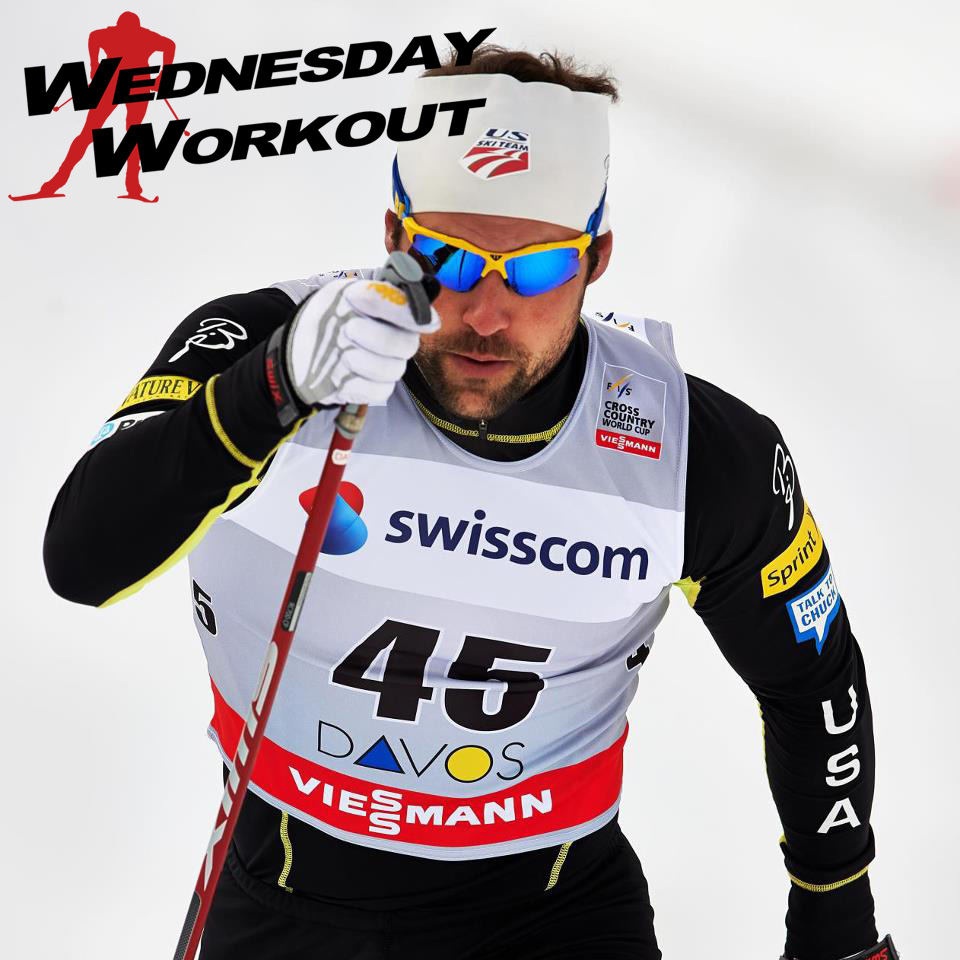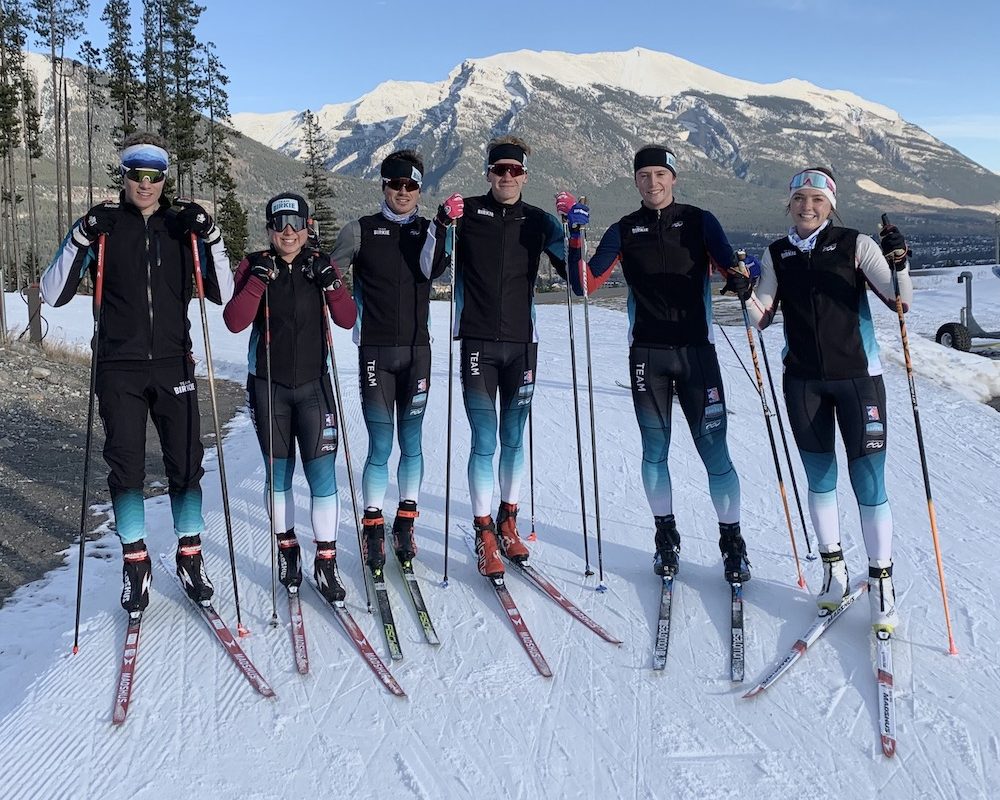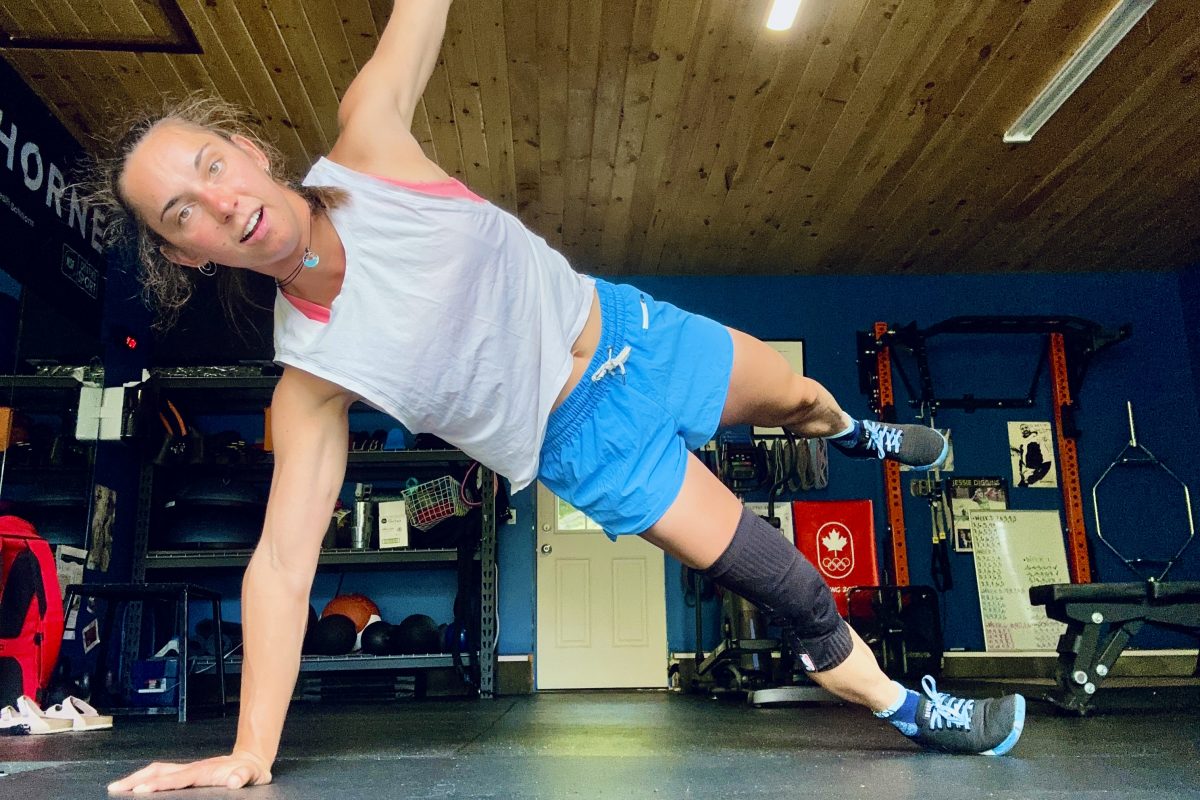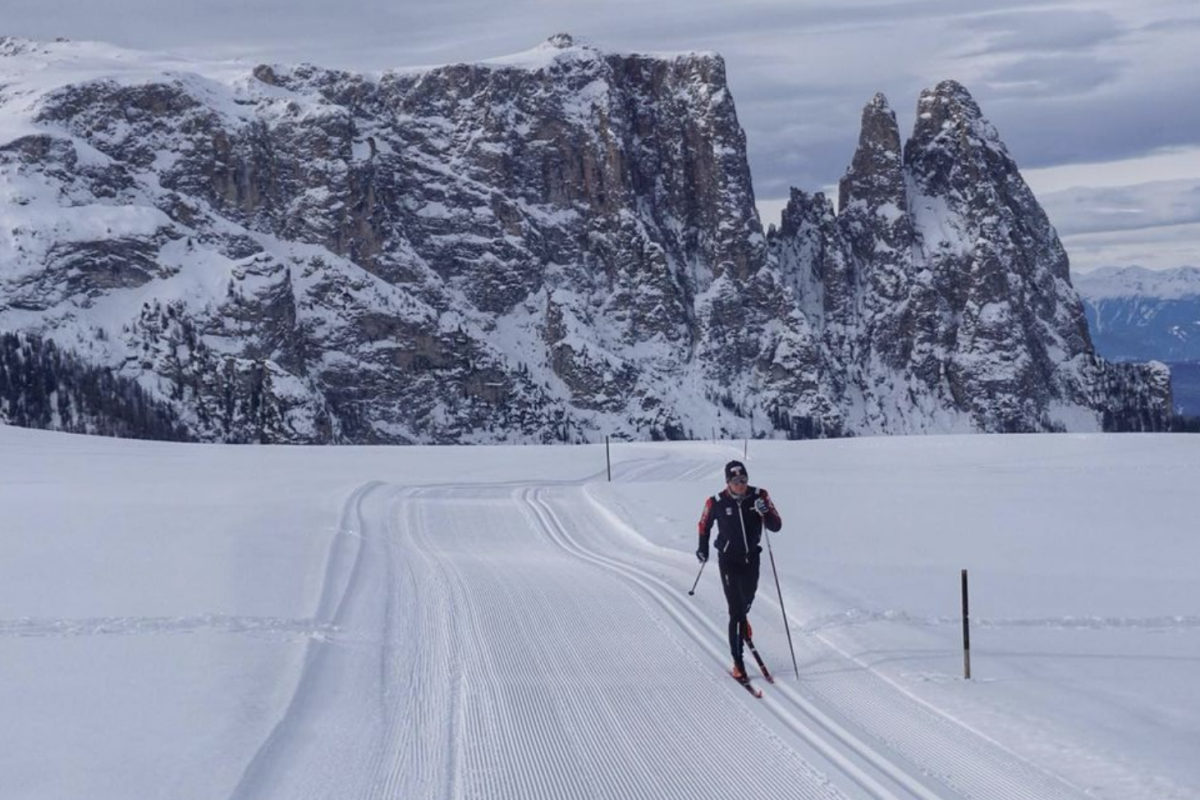
For this Wednesday Workout, we’re bringing back a speed-inducing bounding session Dakota Blackhorse-von Jess shared with us four years ago. These days, Blackhorse-von Jess, 31, is still racing out of the Bend Endurance Academy under the guidance of Ben Husaby. Read the original workout here.
***
[circa October 2013]
This edition of Wednesday Workout was submitted by Dakota Blackhorse-von Jess, the man who dominated the coveted Frozen Thunder classic sprint last week in Canmore, Alberta, and had time to take names: beating U.S. Ski Team members Andy Newell and Simi Hamilton in the process (to be fair, they were on skate skis, but hey, that’s racing). The Norwegian website Langrenn even gave him a shout out on Facebook (translation, “Dakota Blackhorse, lovely name for a cross country runner”).
Upon catching up with Blackhorse-von Jess, who flies solo under coach Ben Husaby at the Bend Endurance Academy in Oregon, we asked him what gives and why he’s so fast this time of year.

“We’ve really been focusing the last 4 years on systematically building my aerobic fitness,” Blackhorse-von Jess, 27, wrote in an email. “Coach Ben and I started with a focus on volume on base training and through the years have progressed to a level where I can sustain high levels of quality work – and clearly it’s paying off.
“All of the indicators in training have been pointing to increased aerobic capacity and efficiency at sustained intensity efforts, so the takeaway is validation of the success of our model thus far,” the Dartmouth grad added. “Racing is so much fun, being back on the road and seeing all my friends and getting back in the wax room with Scott Johnston and Sam Naney of MOD, and for sure being in the mix with Andy and Sim who set the bar for the rest of us was awesome.”
Well said, Blackhorse-von Jess.
Now here’s what he does:
The Workout: Threshold Plus (bounding in mixed terrain)
Explained: The transition into fall training for us means a change in the level of intensity. For the first time since the training year started in May, I get to play in the area of threshold – and threshold plus. Over the 10 years Coach Ben and I have worked together, we’ve developed both long term (year-to-year) and short term (month-to-month) training progressions. As with all things in life, experience is the best teacher and we have learned so much over the years by constantly adding new pieces cherry picking the best ones. This organic and highly collaborative style of training functions, in no small part, because of the way we have grown to understand the work we’re doing.
I mention this because feeling the workout is hands down the most important part. Yes, I use a heart rate monitor when I’m training – especially in intervals. It’s primary function, however, is actually post-workout where we can better determine if we are achieving our goals. There is a whole lot more than goes into creating a training plan that I’ve gone into here, not the least of which is understanding the science. The what and the why of different types/styles of workouts are important for Nordic skier development, but once those have been decided the how makes all the difference.
Wednesdays we hit the trails: pole bounding in mixed terrain.
Warmup: Approx. 30 minutes with 10 minutes or so of bounding specific warmup: ski walking, moosehoofing, and full on explosive bounding in addition to some muscle memory/technique drills
Intervals: 5 x 4-“ish” minutes over set terrain, with the primary goal being to spend as much time as possible at or above threshold without slowing down from interval to interval.
Recover 4-“ish” minutes between. “Active” recovery is key, but how active a person can be in recovery is totally individual – just try to keep the heart rate down in Level 2 or below and work out the lactate best you can. I walk/jog between… once I get my breath back.
(While I dearly love the flowing nature of intervals over constantly varying ground, it’s easier to measure the workout over set terrain. We found a perfect place to work on mid-interval acceleration and then survival, which was a big goal of Ben’s for me this fall as it has been a piece missing in my racing. I say 4-ish minutes because my finishing marker was just a hair over 4 minutes when I started… and I was about 15 seconds faster by the end.)
Doing It Right: Bounding in the woods is not necessarily a function of speed – you can almost always make the work harder by doing it “more correctly.” Just pushing harder usually means a breakdown in technique, which has huge application to ski racing where technique breakdown under duress can have catastrophic consequences.
That said, measuring time over set terrain really helps me understand the changes in feeling my body goes through as I fatigue. Keeping even splits, or dropping negative splits, over the intervals is still the goal.
The first couple intervals are usually about holding myself back (although not everyone experiences training the way I do, so take this with a grain of salt), I get to push a little bit in the third, push more in the fourth, and then dig deep in the last interval to keep getting faster.
By appropriately using the first couple intervals and the first minute or two of each interval to prime your system, there is a natural flow into anaerobia. We try to structure one workout a week to maximize the time spent anaerobic, and this one has been a real gem for us.
Cool down: 15 minutes-“ish.” However long it takes to get moving again and get some of the junk out of your body.



